Bridge the Gaps in Care
Become a Patient Navigation Fellow
What is the Patient Navigation Program (PNP)?
The ASFHG Patient Navigation Program, a collaboration with the Patient Care Intervention Center (PCIC), is in its second year within ASFHG, where applicants have the opportunity to act as patient navigators within their community project. While following a similar structure to the Fellowship, being an ASFHG Patient Navigation Fellow will require applicants to work on specific Legacy projects or new projects that focus on resource connection (see below).
ASFHG Patient Navigation Fellows are also ASFHG Fellows and receive the training and mentorship that all Fellows receive. In addition to this, several training sessions cover case management, negotiating entitlement programs like Medicaid and Medicare, and the use of the PCIC UCCP and resource database. This curriculum will enable Fellows to make referrals with real-time feedback and give clients access to the most up-to-date and complete listing of community resources.
This program is a ground-breaking enhancement of what we can offer our Fellows, making them better change agents for equitable healthcare delivery by digging deeper to understand the underlying systemic reasons surrounding the health outcomes of marginalized individuals.
If you are interested in doing a legacy project, the current projects involved in PNP are listed below. If you are interested in a new project that would fall under the PNP category, make sure to indicate this in a one-on-one with staff and in your application (there will be a section about PNP).
Please visit our Current Projects page to learn more about these projects and connect with the Fellows currently doing them.
Requirements for Patient Navigators
All of the following tasks will be counted as service hours that will be applied to your service hours requirement for the Fellowship.
If you have questions or are interested in becoming an ASFHG PNP Fellow, please reach out to our PNP coordinator, Catherine McDonald, at catherine.mcdonald@asfhg.org.
2024-25 Patient Navigation Projects
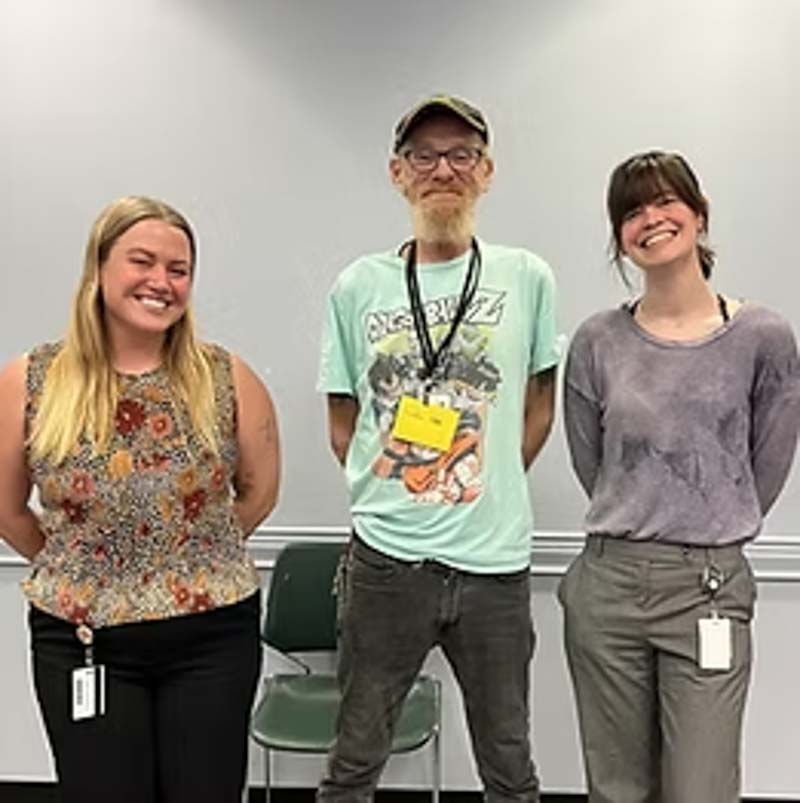
Merrick Garner and Carlie Stratemann
UTHealth McGovern Medical School & UTHealth School of Public Health
*PCIC Integration at HOMES Clinic
Community Site: HOMES Clinic
Site Mentor: Dr. Dana Clark; Academic Mentor: Dr. Benjamin King
Stratemann and Garner are addressing the non-medical drivers of health of those experiencing homelessness in Houston by using a mobile referral platform, the Unified Care Continuum Platform (UCCP) by the Patient Care Intervention Center (PCIC), that helps connect the unhoused population to social and medical service providers to meet their needs. With this project, Stratemann and Garner hope to expand the number of HOMES Clinic student volunteers, grow understanding of the available resources for this population, and help reduce demand on homelessness agencies.
You can view PCIC Here.
Shivanki Juneja, Isha Parikh, and Richa John
Baylor College of Medicine & UTHealth McGovern Medical School
*Moms to Moms
Community Site: Ben Taub Hospital / Lyndon B. Johnson Hospital
Site Mentor: Dr. Irene Stafford and Dr. Efua B. Leke; Academic Mentor: Dr. Sarah Kay Conrad
Juneja, Parikh, and John are addressing maternal health in Harris County, Houston, through a comprehensive program focused on prenatal and postpartum education to improve health literacy. This initiative, primarily based within the Harris Health System, serves underserved and vulnerable populations. The program aims to significantly and sustainably improve maternal and neonatal health outcomes by providing personalized education and resource referrals and creating general stand-alone resources.
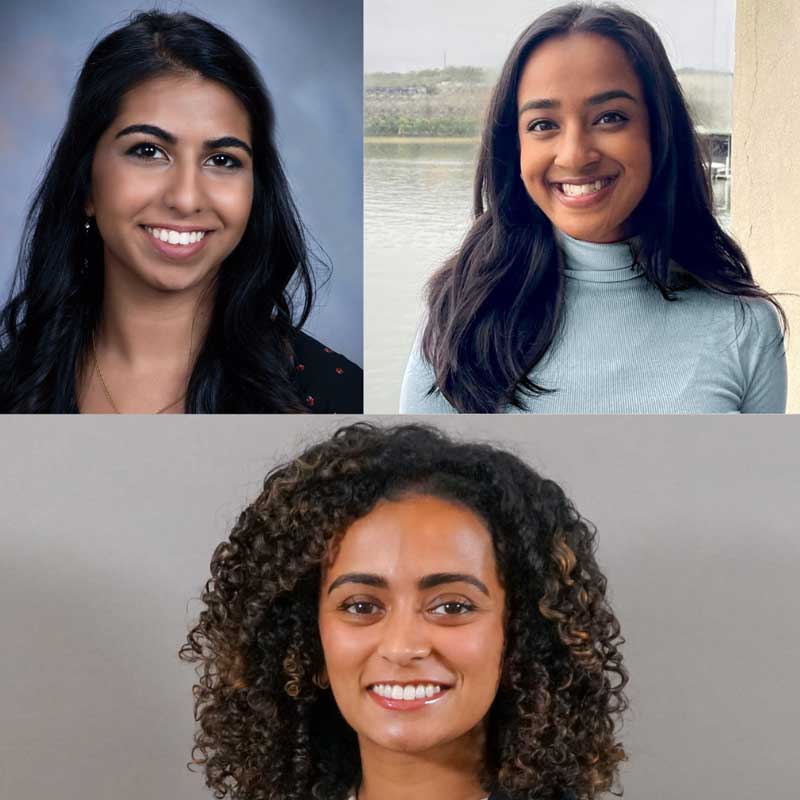
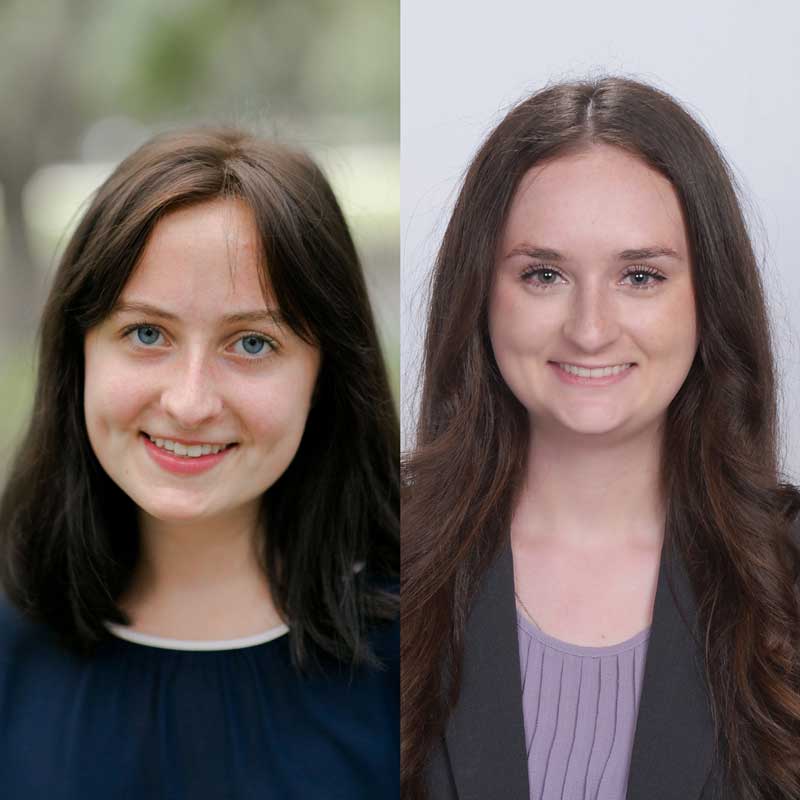
Madeleine Cluck and Lindsey DeSplinter
Baylor College of Medicine, UTHealth McGovern Medical School, & UTHealth School of Public Health
Patient Navigation Project at New Hope Housing
Community Site: New Hope Housing
Site Mentor: Sandra Martinez; Academic Mentor: Dr. Rebecca Beyda
The Patient Navigation Project seeks to connect residents at New Hope Housing with community resources to address specific health care needs. Cluck and DeSplinter will use PCIC’s database and 1-on-1 meetings with families to help residents wade through the complexities of the healthcare system and facilitate access to preventative care.
Ashlynn McCall and Jessica Medrano
Tilman J. Fertitta Family College of Medicine
Community Care Navigators at Reed
Community Site: New Hope Housing- Reed
Site Mentor: Sandra Marinez; Academic Mentor: Dr. Rebecca Beyda
McCall and Medrano’s project aims to assist families facing challenges in navigating the healthcare system by helping and connecting them to different resources they may need in order to find providers, schedule appointments, access health insurance, coordinate transportation, and more. By leveraging existing resources at New Hope Housing, like the Reed Family Clinic, they strive to alleviate barriers to accessing health services and improve care coordination using the PCIC database.
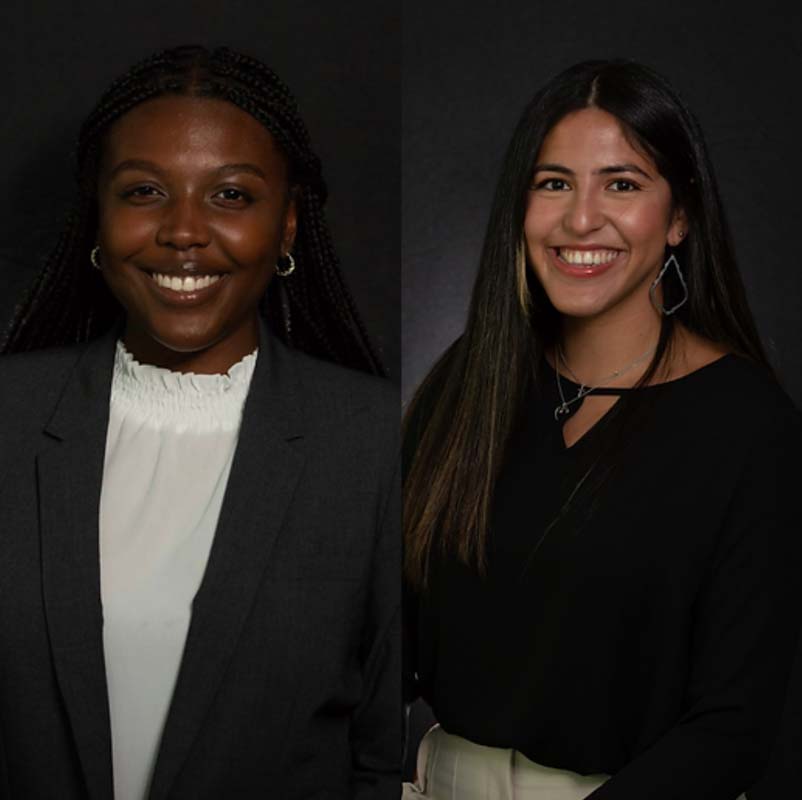
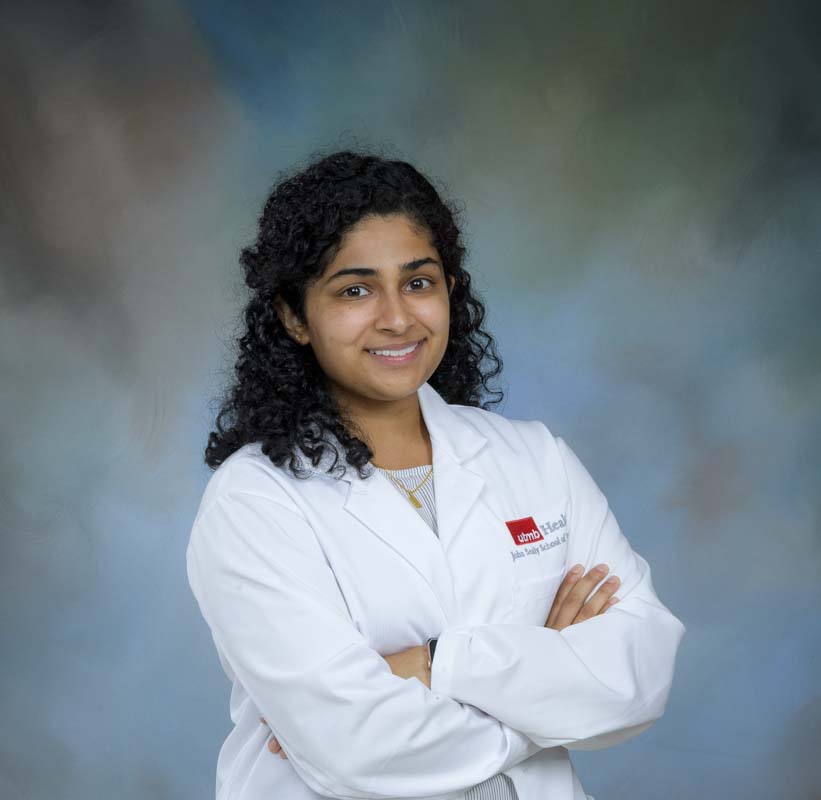
Neha Dronamraju
UTMB John Sealy School of Medicine
BrIDging Resources
Community Site: CHRISTUS Our Daily Bread
Site Mentor: Angela Joseph; Academic Mentor: Dr. Sarah Siddiqui
Dronamraju is addressing barriers to access of social services in Galveston by assisting with ID application and resource navigation for the unhoused and underserved community. Ultimately, the program aims to increase access to social services such as employment, housing, healthcare, etc, through acquiring identification documents and addressing their well-being with resource navigation.
Emily Minner, Aamuktha Porika, and Sydney Zhou
Texas A&M University School of Engineering Medicine
Project S.E.E.D. (Support, Empower, and Engage with the
Disability Community)
Community Site: UT Spina Bifida Clinic and RSVP (Rehabilitation Services Volunteer Project) Clinic
Site Mentor: Dr. Sunil Kothari, Dr. Jason Au; Academic Mentor: Dr. Ericka P. Greene
Based at the UT Spina Bifida Clinic and the RSVP (Rehabilitation Services Volunteer Project) Clinic, this legacy project addresses the gap between resource awareness and utilization in the disability community, specifically among adult patients with brain injuries, spinal cord injuries, and amputations, as well as pediatric patients with spina bifida. Volunteers will engage in 15-30 minute conversations with patients to understand the social and economic resources they are lacking and then connect them.
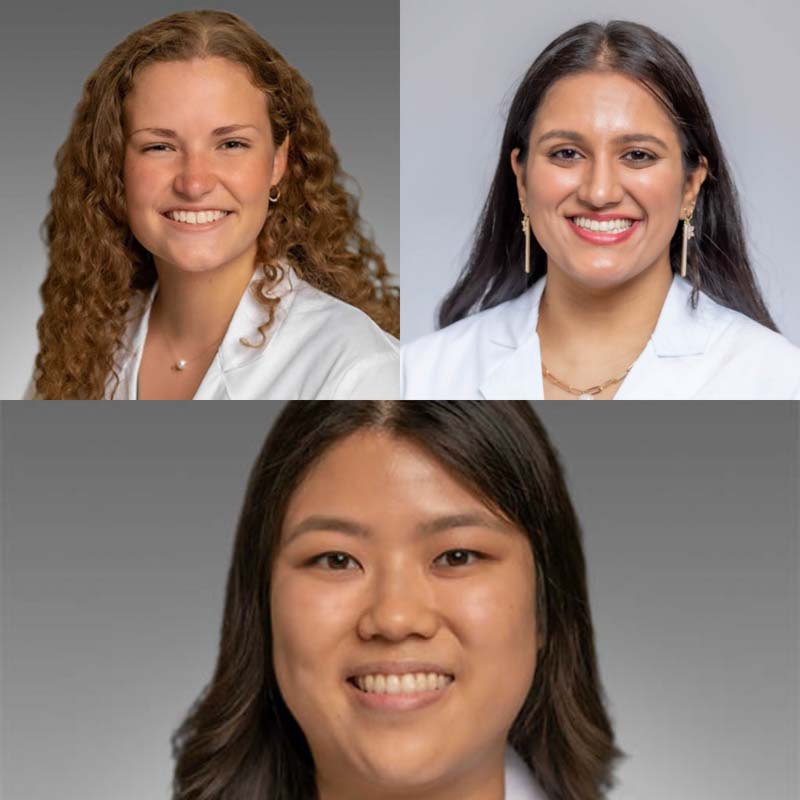
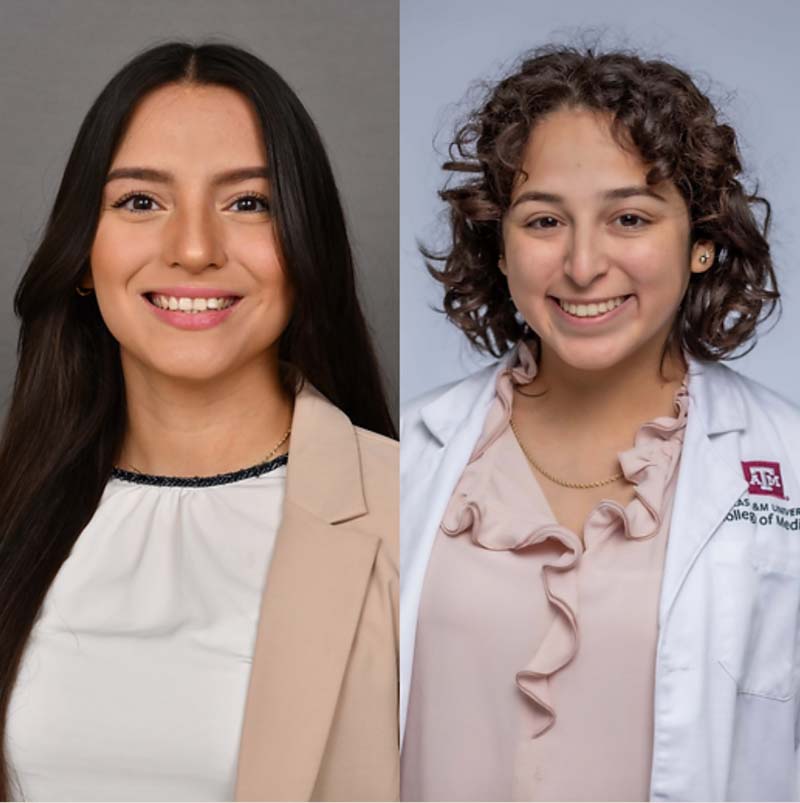
Alexis Rivas and Gabriella Becerra
UTHealth McGovern Medical School & Texas A&M University School of Medicine
Project Name: Casa Maria Conneciones:
Community Site: Casa Maria Health Clinic
Site Mentor: Monserrat Viveros; Academic Mentor: Dr. Mary Kollmer Horton
Becerra and Rivas are working as Patient Navigators with the PCIC platform to close gaps in access to resources in newly immigrated, Spanish-speaking populations by working with patients at the Casa Maria Clinic. These gaps include being unfamiliar with the United States healthcare system, lacking the resources to access healthcare/financial assistance programs, and being unfairly excluded from these resources due to language, education, and financial barriers.